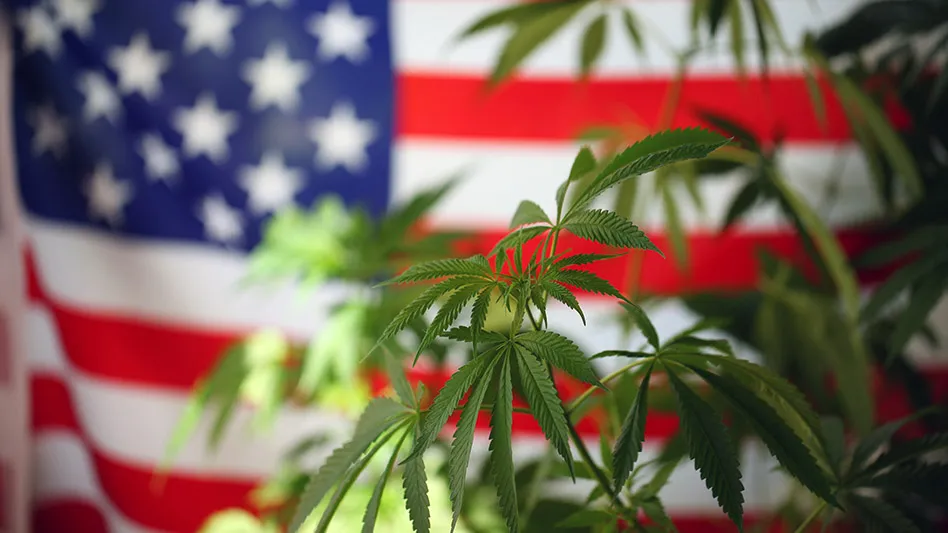State regulators, advocates, health experts and patients were among a surge of parties to submit comments July 22 to the Drug Enforcement Administration (DEA) on a proposed rule to reschedule marijuana in what may have been a strategic move for some.
While July 22 marked the end of a 60-day public comment period from when the DEA published the notice of proposed rulemaking—to reclassify cannabis from a Schedule I to Schedule III drug under the Controlled Substances Act (CSA)—on May 21 in the Federal Register, the DEA continued to post comments July 23 on the Federal Register’s website that had met the deadline.
As of 1 p.m. ET on July 23, nearly 43,000 commenters submitted their input, including almost 7,500 (17.5%) in the final three days. The DEA posted more than 3,000 comments the day after the 60-day period closed (those filed the day before).
“I have seen the first-hand effects of medical cannabis for improving quality of life. I experienced severe neuropathy in my feet, making walking very difficult, that medical cannabis helped. This type of care should be available for everybody,” wrote Ruth Feister, one of the final commenters to submit her input by 11:59 p.m. on July 22.
“It is life-saving to those with debilitating illnesses and improves the quality of life for millions of Americans managing chronic disease,” Feister wrote. “Plus, medical cannabis has a very good safety profile from over 30,000 global research studies. Cannabis should not be a Schedule I substance with lived experiences and scientific evidence showing its benefits.”
Although the proposed rule is to reschedule cannabis, 69% of comments supported descheduling cannabis entirely by removing it from the CSA altogether, according to an analysis conducted by the Drug Policy Alliance (DPA). This analysis aligns with a 2023 Gallup poll that found 70% of U.S. adults support legalizing cannabis.
The DPA analysis resulted in the following findings:
69.3%, or 29,750 of comments, support descheduling, decriminalizing, or legalizing marijuana at the federal level; 42.4%, or 18,207 comments, mention the need for federal marijuana reform to advance racial justice or social equity; and 24%, or 10,327 comments, were submitted through a public comment tool hosted by United for Marijuana Decriminalization (UMD), a coalition that DPA convenes. These comments were the result of months of grassroots outreach to communities that have been impacted by marijuana criminalization.
While a Schedule III classification would provide tax relief to cannabis businesses, among other potential benefits to the industry, it wouldn’t change federal criminalization.
“Participation in public comment processes gives the American public a chance to speak from personal experience and provide feedback on proposed legal changes—and it gives the federal government an opportunity to adjust their proposals to reflect public opinion,” Cat Packer, Director of Drug Markets and Legal Regulation for the DPA, said in a public statement.
“When it comes to the DOJ’s proposal to reschedule marijuana, public opinion could not be clearer: 29,750 comments, nearly 70% of all comments, support federal decriminalization or legalization because rescheduling is simply not enough,” Packer said. “The people are demanding the Biden administration do more to deliver on the marijuana reforms that communities deserve—and that President Biden and Vice President Harris themselves have promised on numerous occasions.”
The Department of Justice (DOJ) officially issued the proposed rule that cannabis be rescheduled to Schedule III, with Attorney General Merrick Garland signing a 92-page notice in May. The DEA is a component of the DOJ but hasn’t necessarily endorsed the proposed rule.
“DEA has not yet made a determination as to its views of the appropriate schedule for marijuana,” according to the notice of proposed rulemaking published May 21 in the Federal Register.
While the DEA is the executive branch’s authoritative arm for rescheduling drugs under the CSA through a notice-and-comment rulemaking process, Washington lawmakers have questioned who’s calling the shots behind the scenes because Administrator Anne Milgram’s signature is absent on the 92-page notice—a document traditionally signed by the DEA administrator.
With the DEA long resisting cannabis rescheduling and with the May 21 Federal Register notice stating that the “DEA believes that additional information arising from this rulemaking will further inform the findings regarding the appropriate schedule for marijuana,” public participation soared during the 60-day comment period.
And the fact that roughly 17.5% of filers waited until the final three days, in part, was anticipated, according to Shane Pennington, a partner in the Litigation Department at Porter Wright who specializes in cannabis law and policy.
“I guarantee there will be more than 35K comments on this before it’s all said and done,” he wrote on social media July 16. “Most strategic filers will submit at the very last minute to prevent others from reading and responding.”
Pennington’s remarks came after Cannabis Business Times published an article on the roughly 30,000 comments that had been filed on the DEA’s proposed rule at that time. The article highlighted input from Dr. Peter Grinspoon, a well-known cannabis expert, U.S. Cannabis Council Executive Director Edward Conklin, and sample comments from cannabis advocacy organization NORML and prohibitionist group Smart Approaches to Marijuana that many filers repurposed or reused for their own submissions.
H/T: www.cannabisbusinesstimes.com



